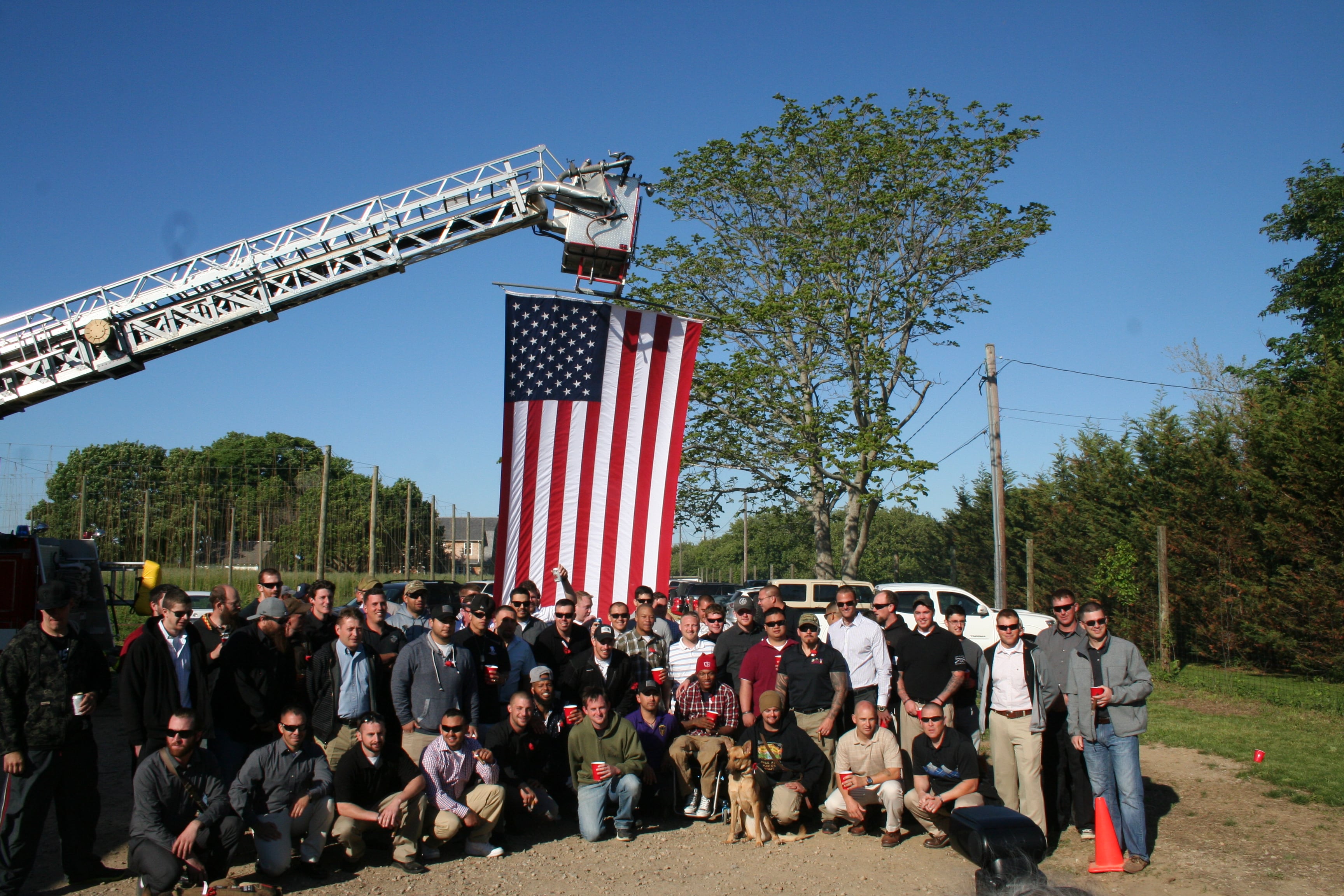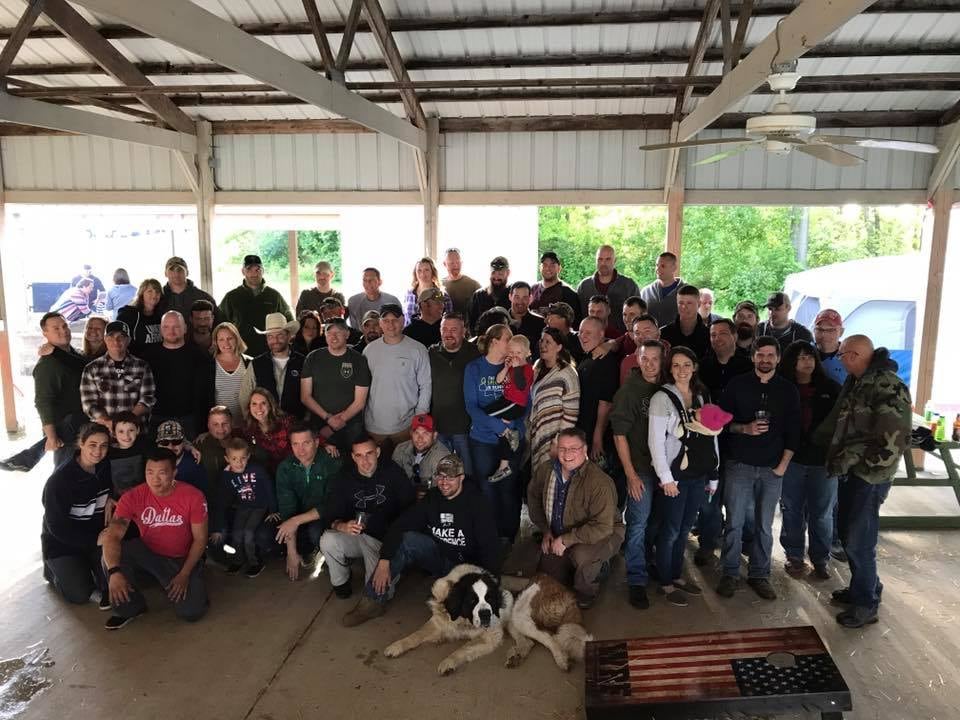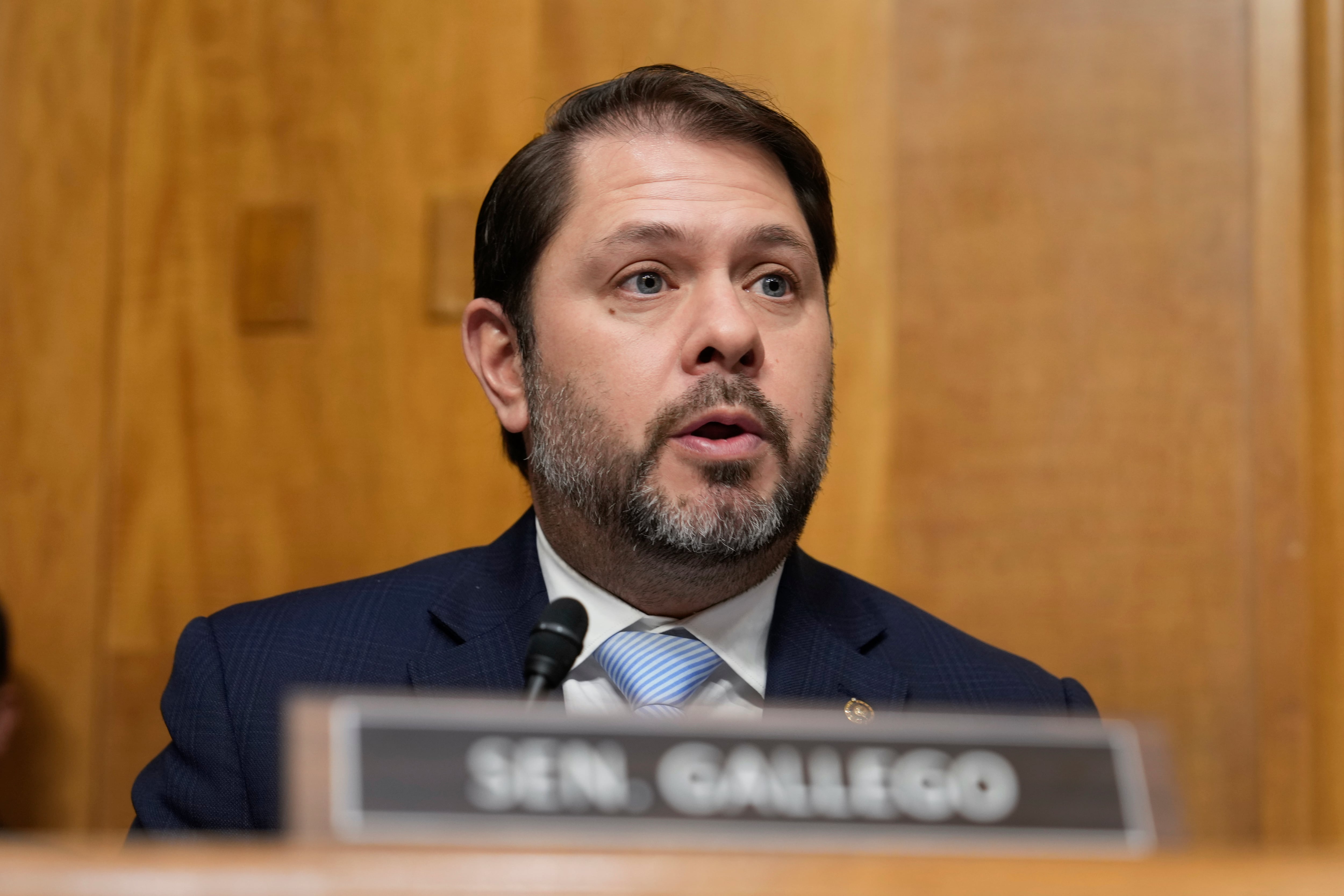When James Ferguson set out to plan a reunion for his Marines of India Battery, 3rd Battalion, 12th Marines in 2015, it was simply that.
He never imagined the idea would blossom into the Warrior Reunion Foundation, a nonprofit that pays for reunions of combat comrades of all generations and helps them organize their events.
For years, service members and veterans have held reunions of various types and sizes, getting together to reconnect and share stories and memories. Veterans have long recognized the importance of these connections, said Joe Davis a spokesman for Veterans of Foreign Wars.
“It’s about bringing former comrades together in a friendly environment," he said, adding that the VFW regularly provides information in its magazine about upcoming reunions.
Ferguson sees the reunions as healing experiences, too, which is why his foundation is footing the bill and providing guidance in the planning process.
“I firmly believe that the most important factor in success in life after service is remaining connected with those with whom you served,” said Ferguson, who founded Warrior Reunion Foundation. “It’s been the most important factor in my success, and I think it’s often what’s missing in the equation.”
Sometimes complicated and expensive solutions aren’t the answer to a veteran’s problems, said Ferguson, who left the Marine Corps as a captain in 2013.
“It’s not a problem at all. It’s just that we’re no longer surrounded by the people who understand what we went through … the people with whom we’re the most comfortable just talking,” he said.
His closely knit unit accomplished many things together, he said, but also dealt with tremendous loss. About one in four comrades were wounded, and five Marines were killed in action out of about 120 in the company.
Within six to eight weeks after they returned from their 2010 deployment to Afghanistan, most of the unit had either left active duty or received orders to move elsewhere.
“We never had the opportunity to process our experience and heal together,” he said.
These reunions are designed to help these combat comrades begin to do that. Since mid-2017, the foundation has provided eight reunions for units of service members who deployed to combat together. They received the highest honor and grant in the Newman’s Own competition this year, and received a grant from Wounded Warrior Project.
In 2019, they will fund and help plan 10 reunions serving up to 1,000 combat veterans.
The only eligibility requirement is that the unit deployed to combat together.
The foundation pays for all costs for the reunion — food, lodging, activities.
“We tell every unit, all you have to do is get yourself there, and we’ll take care of the rest,” Ferguson said.
And if members of the unit can’t afford transportation, the foundation can provide gas cards or buy plane tickets.
Like Ferguson’s first reunion, these weekends are usually held in an outdoor environment.
“I didn’t want to do it at a hotel, because it’s generally a sterile environment, and people may just self-isolate in their rooms. I really wanted to get everybody back together in that kind of field environment that we’re used to,” Ferguson said.
A friend offered his farm for Ferguson’s reunion.
“We set up big party tents, slept on cots under the tents, hung out in the barn, went on a chartered fishing trip, had some bonfires, had some live music. We did a memorial service on the farm, and the local community came. It was so amazing,” he said.
Not every reunion is held outdoors — the foundation is working with some older veterans who fought together in Vietnam, who will hold their reunion in Washington, D.C., likely in a hotel, Ferguson said.
The veterans do service projects at the reunions. The foundation also arranges informational briefings designed to be a non-stigmatizing approach to some of the typical issues combat veterans face, and to provide a variety of resources available to help veterans, he said.
He invites local chapters of the American Legion and VFW to send veterans to have a meal with them, or to participate in the memorial service and honor guard.
“And at every single one, they’ve sent people. That intergenerational connection is really cool,” Ferguson said.
Each unit makes its own decisions about where and when their reunion will be held, but the foundation helps guide them through the process every step of the way, with a timeline of tasks and regular conference calls. The foundation negotiates with vendors and makes payments.
Members of the foundation are also with the unit throughout the three- to four-day extended weekend reunion experience.
RELATED

Ferguson recognizes that in some cases these reunions could bring up memories and emotions that are difficult to handle.
“One thing I’ve tried to be cognizant of, is, we always know what local resources are available if there is some sort of crisis. Thankfully, we haven’t had one," Ferguson said. "But I don’t want to over-clinicalize the experience.”
The prevailing narrative about the post-9/11 generation of veterans is wrong, he said.
“We’re not broken, we don’t need to be fixed. … We just need each other," he said.
Ferguson said he tries to focus on the veterans’ strengths and potential. His message is that the veterans “accomplished amazing things together, and that shouldn’t be the proudest chapter of their lives. It should be a springboard to accomplishing even greater things for our country, and we can all support each other in doing that.”
Having counselors available can be important, said Dr. David Riggs, chair of the Medical and Clinical Psychology Department at the Uniformed Services University of the Health Sciences.
“For a number of our service members, there’s a sense that they come home from war having experienced things that other people in their neighborhood haven’t. It can increase even more the sense of being different or isolated.
“So I do think encouraging folks to connect or reconnect can have value. I just know that sometimes things can go poorly, and you want to make sure the safety net is there if possible,” Riggs said.
He’s not aware of any research that has investigated specifically the benefits and processes of military reunions, he said.
“Something to keep in mind is that not everyone is going to have the same reaction,” he said.
Not everyone will come to these reunions.
“One of the things I’ve learned is that human beings have a huge variety of responses to stress and trauma, and it’s not easy to find a one-size-fits-all solution to memories and emotions that we carry forward with us,” Riggs said. “While the action of getting back together with unit mates might be really powerful and helpful for some people, it might not be for everybody.”
Ferguson said he’s seen positive impacts of the reunions: rekindled friendships and the powerful realization that their reactions were normal, that many had similar issues, and there are resources available to help with those issues.

‘It was healing for everybody’
Bart Cole had such a profound experience at his Marine Reserve unit’s reunion in May 2017 that he now volunteers for Warrior Reunion Foundation.
“We shared a lot with brothers from our past deployments around fire pits, straw bales and picnic tables. … After so much time had passed, we buried old hatchets and could lean on each other. We laughed at our failures, shrugged off old wounds, bragged of triumphs, and embraced each other as brothers,” Cole said.
Cole’s unit, Kilo Company, 3rd Battalion, 24th Marines, held the reunion in 2017 in Terre Haute, Indiana. Kilo Company deployed in 2004 to Abu Ghraib, Iraq, and in 2009 to Waleed and Trebil, Iraq.
In 2006 -2007, Kilo Company augmented 1st Battalion, 24th Marines during combat operations in Fallujah, suffering 22 Marines killed in action and 331 wounded, including 41 amputees. They held a memorial ceremony with some of their Gold Star families at the previous company headquarters in Terre Haute.
Before he connected with Ferguson, Cole had thought about organizing a reunion for Kilo Company, but found it difficult, especially with the Marines scattered to the winds after the deployments.
“Trying to coordinate a reunion was pretty hard. I didn’t really know how to do it,” Cole said. “Warrior Reunion Foundation did a really good job with us, funded our reunion, and did a good job coordinating to get people there from out of state."
When he saw his wounded comrades who attended the reunion, “it was a mix of emotions. I was happy. I felt guilty. But then, we reverted back to how we were before they were wounded. Sitting around the fire, joking,” said Cole, who left the Marine Corps as a staff sergeant.
“I can’t speak for all of our wounded, but the ones that showed up, it was healing for everybody. I’m glad they came because they showed the rest of us that life goes on. It was good to see them with families, good to see them healthy.”
Cole recalls meeting the sons and daughters of his comrades at the reunion, including the families of two Marines who were killed in action.
“The families were very kind to us. It was good to tell stories about their fathers to the kids, to pass some of those life stories on to the kids. I hope they remember it,” Cole said. "The last time I’d seen one of the sons was when he was an infant. We saw pictures of him that his dad was showing to us, before he got killed.”
Karen has covered military families, quality of life and consumer issues for Military Times for more than 30 years, and is co-author of a chapter on media coverage of military families in the book "A Battle Plan for Supporting Military Families." She previously worked for newspapers in Guam, Norfolk, Jacksonville, Fla., and Athens, Ga.





